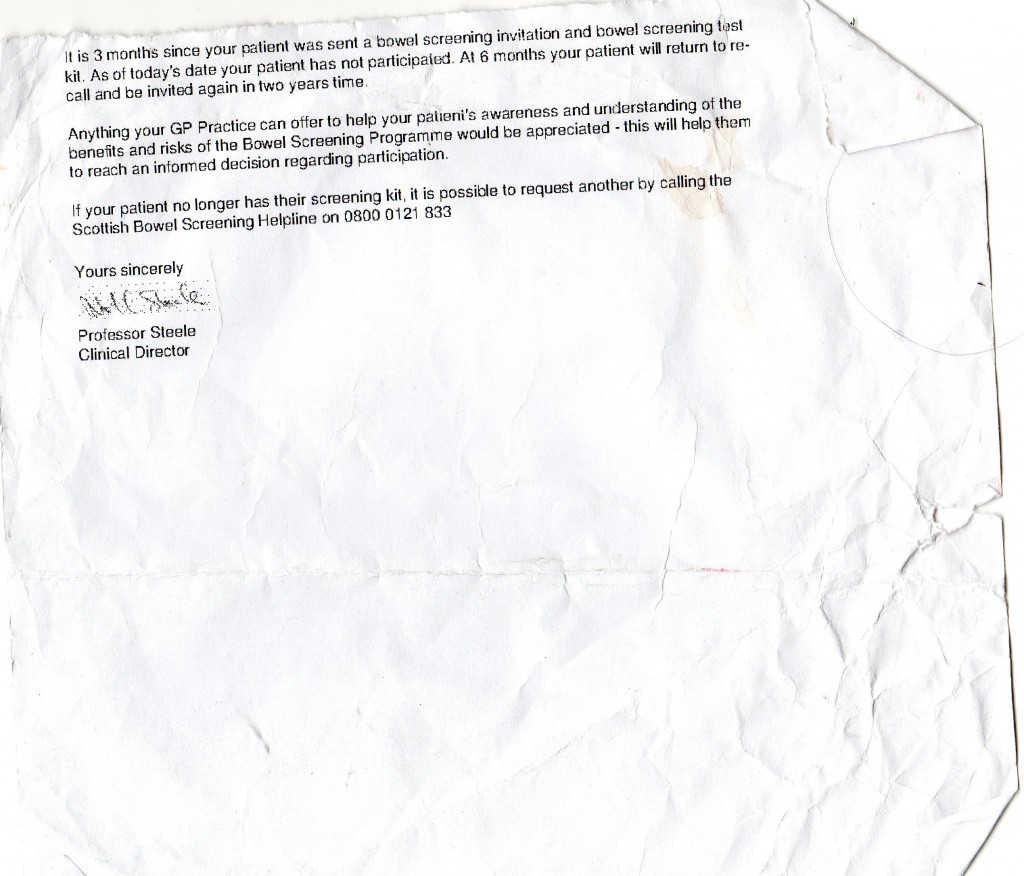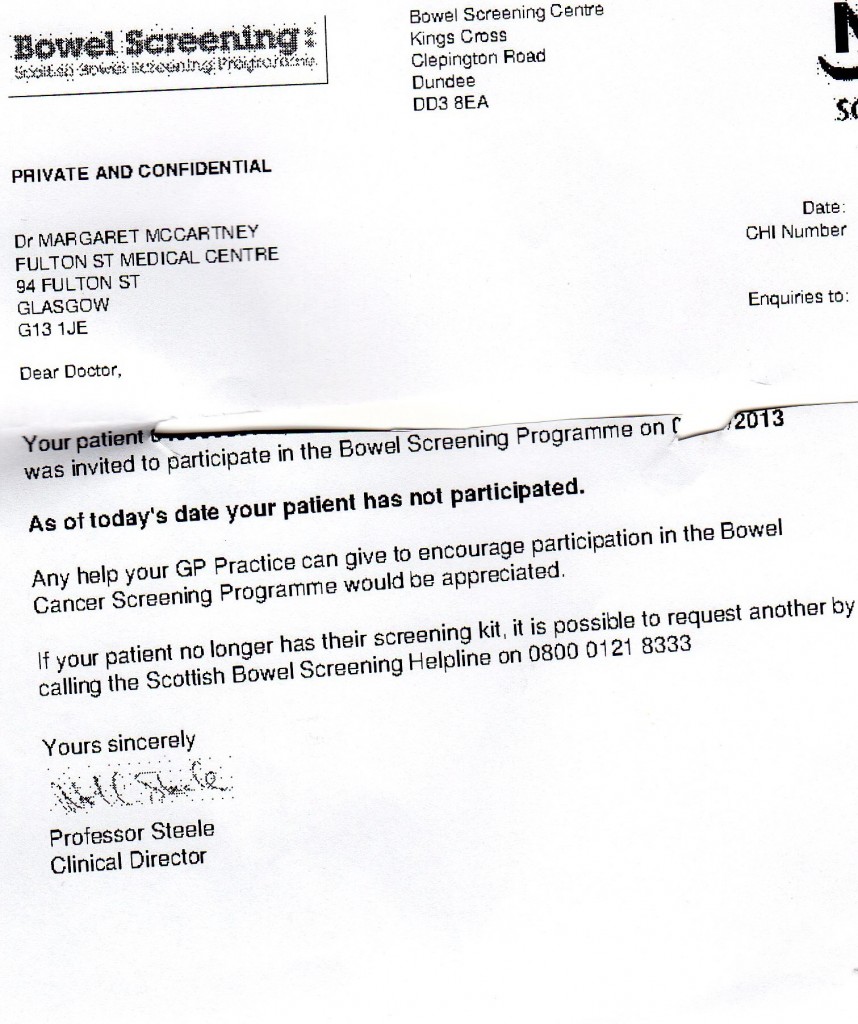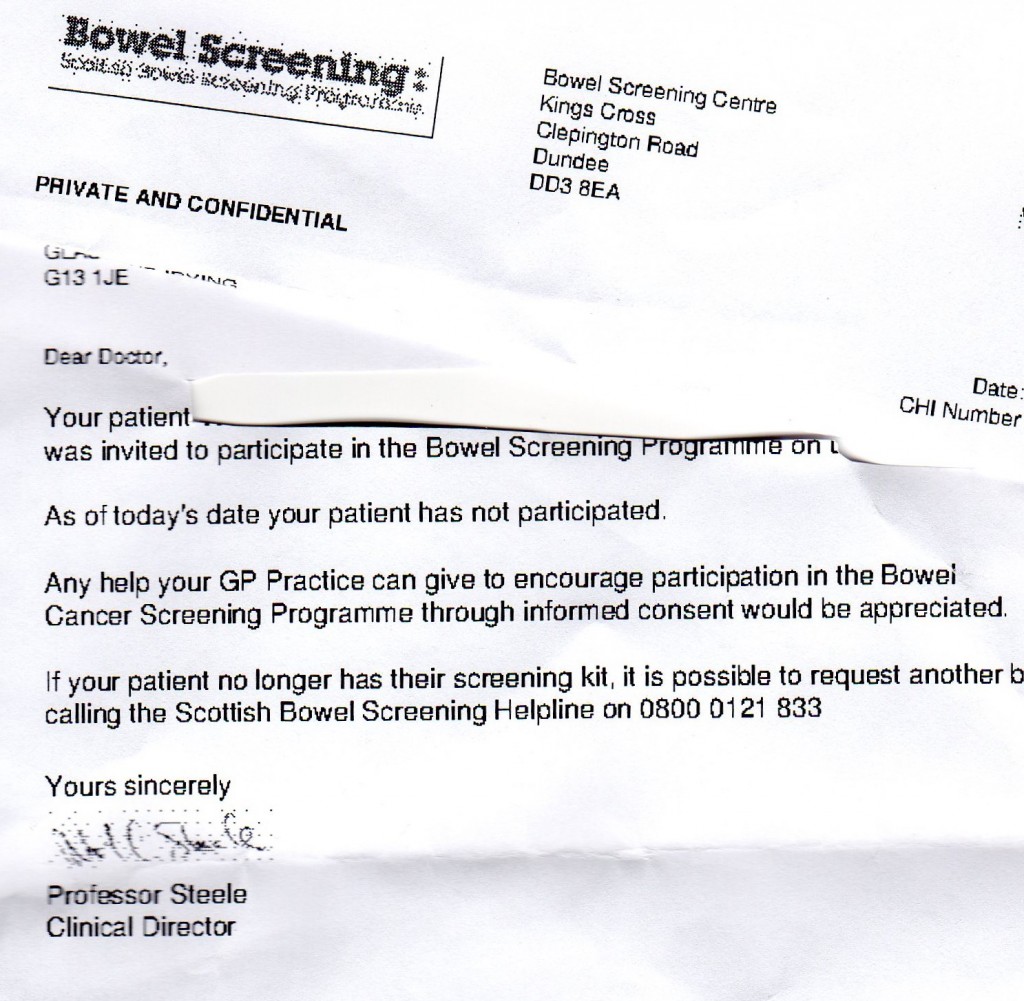GPs are now paid to chase up people who have not returned their bowel cancer screening pack.
This is the letter that we are being sent from the screeners when a patient doesn’t sign up. There is no room for the possibility that some people might weigh up the pros and the cons and decide: no thanks.
We are writing to patients to say that if they want to talk to us about it, we are very happy to talk through the pros, the cons – the uncertainties and the statistics. I will be doing my best to be informative, not judgemental. I will not be encouraging people to attend, but offering a discussion of the facts as we currently know them. I will be using Cochrane’s small print.
“. For example, in England and Wales in 2004, the cumulative 10 year mortality from colorectal cancer in males for the decades beginning 40, 50 and 60 are respectively 5, 22 and 70 per 10,000 individuals (ONS 2005). If offering screening reduced this mortality from colorectal cancer by 16%, then the reduction in CRC deaths over the following 10 years for each of these age groups would be 0.8, 3.5 and 11.2 respectively, per 10,000 invited. This somewhat overestimates the benefits of CRC screening, as some of the mortality relates to those diagnosed prior to that decade (ONS 2004). However, it is also an underestimate for those who regularly attend CRC screening. If we use the mortality reduction of 25% estimated for those who regularly attend screening, the reduction in CRC mortality over 10 years for those aged 40, 50 and 60 would be 1.25, 5.5 and 17.5 per 10,000 respectively.”
This puffs the air out of the “16% reduction in deaths” from bowel cancer used in the screening publicity. It’s unfair to use relative risk unless you also tell people what their risk was to start with, and far better to use absolute risk.
This scheme raises pointed ethical questions. We must respect the autonomy of the patient and ensure that the person has enough fair information to make an informed choice. We must be clear about uncertainties and side effects. Using financial incentives to get people to attend screening is morally questionable. It would be far better if we were asked to help people make good choices – not to increase the uptake of screening.
Update, 4/Sept/13
The words ‘through informed consent’ have been added. It’s just as bad.
It would be far more ethical to ask doctors to help patients make informed decisions – not to simply ‘encourage participation’ . The purpose of informed choice is CHOICE.
New update – 26/12/13 did get there, eventually.
did get there, eventually.



13 Responses to “This is not informed choice.”